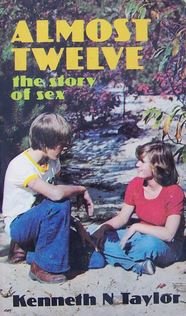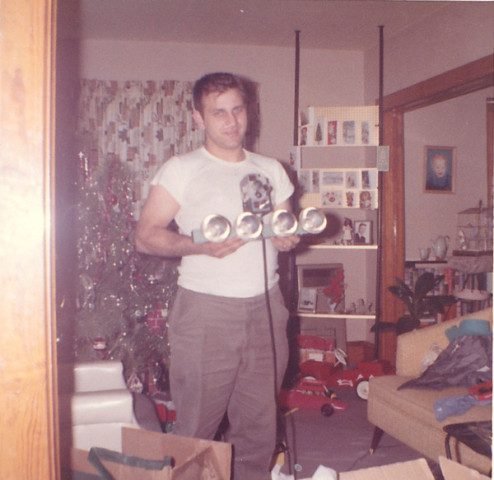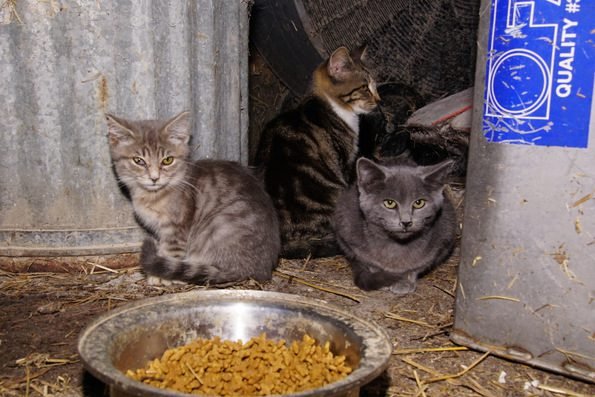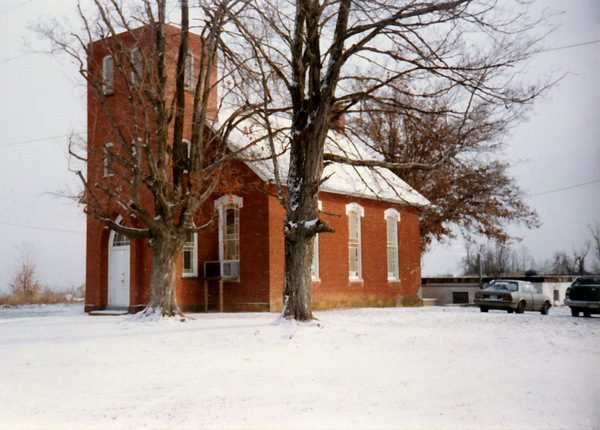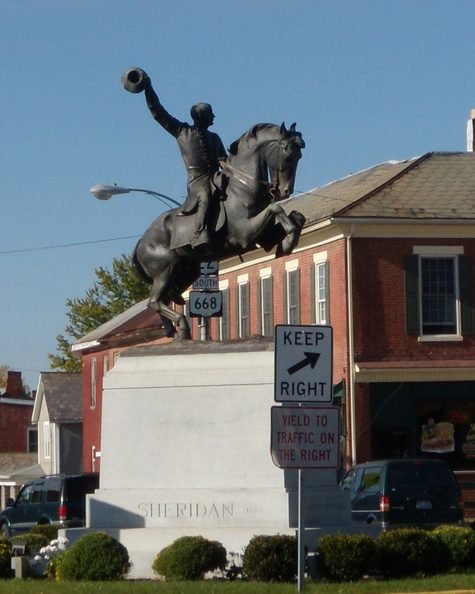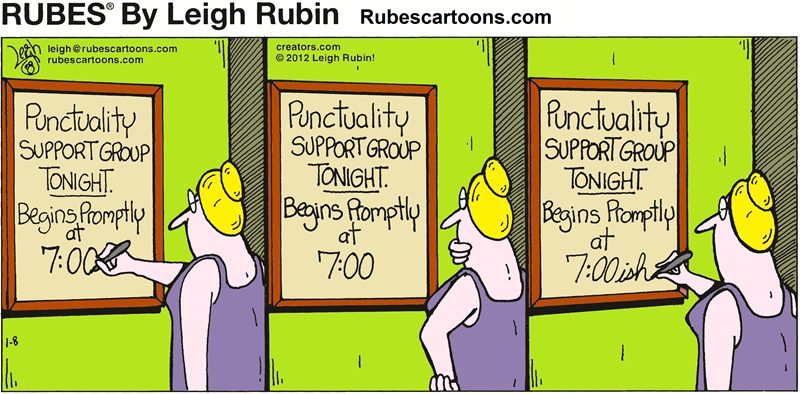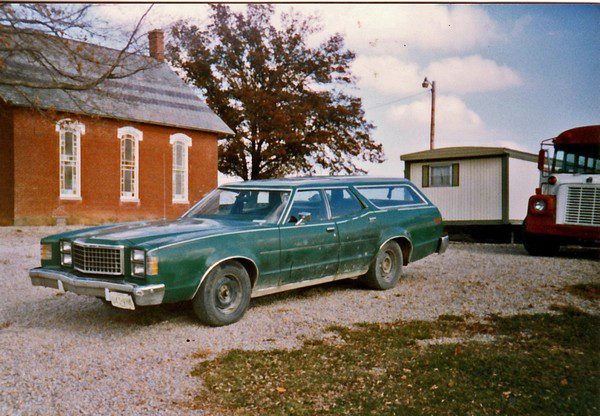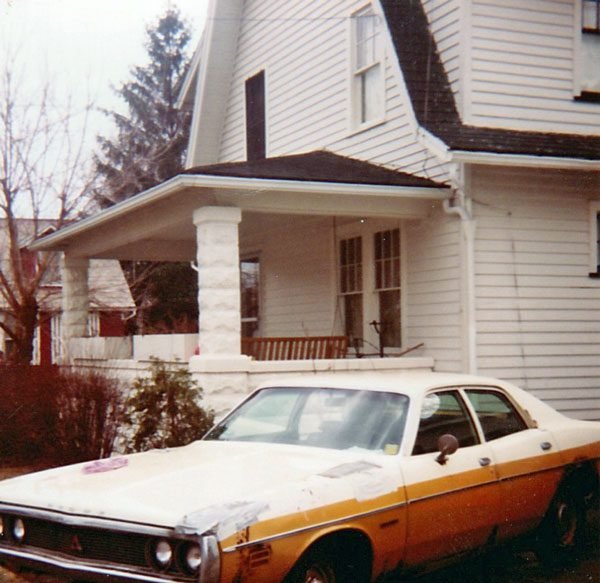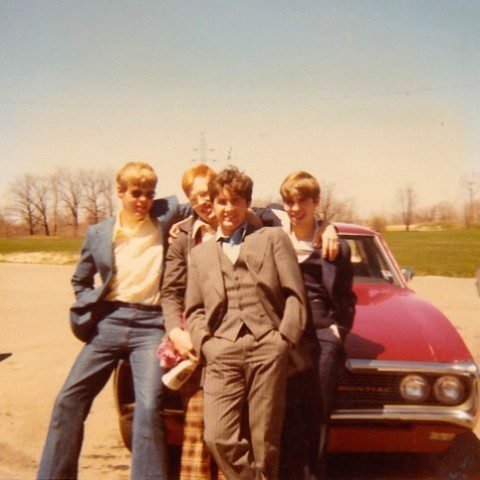
During the summer of 1972, my wife’s family took a vacation road trip from Bay City, Michigan to California. While in California, their car suffered a major mechanical failure. Polly’s dad decided to junk the car and buy another one: a brand spanking new 1972 AMC Hornet, complete with bench seats, crank windows, and an AM radio.
Dad graduated from Midwestern Baptist College in Pontiac, Michigan in the spring of 1976 and moved his family to Newark, Ohio so he could work at the Newark Baptist Temple as its assistant pastor. By then the Hornet was worn out and Dad was driving a Chrysler. (Polly’s dad was known for misusing and abusing cars. It is no surprise that he wore out a four-year-old automobile. Besides, it was built by AMC — a company not known for quality cars.) The Hornet moved to Newark too, only to return to Pontiac with a new driver: seventeen-year-old Polly. While Polly started taking some college classes at Midwestern during her senior year of high school (from which she graduated second in her class), her first full year began in the fall of 1976.
While at Midwestern, Polly’s dad spent four years working an excellent-paying union job at GM Truck and Coach’s Pontiac plant. His new job at the Baptist Temple paid seventy-five percent less than he made at Truck and Coach, and had no insurance benefits. When Polly arrived at Midwestern with her Hornet, she was on her own. Her parents were unable to pay for her tuition and room and board, so it was up to her to pay her own way. This was quite a culture shock for her, having grown up in a blue-collar middle-class home.
Polly quickly found work, but the wages were poor. Fortunately, she met a redheaded boy from Ohio who quickly caught her fancy. I had much better-paying jobs than Polly did, so I often gave her money for food, gasoline, and other incidentals. One of my responsibilities was repairing and maintaining Polly’s car. Not long after Polly arrived at Midwestern, the Hornet quit running. Her dad told her to junk the car (without providing her with new transportation). I told Polly to ignore her dad; that I could get the car up and running in no time flat. And I did.
The Hornet was a non-stop repair project. I was up to the task, able to fix virtually anything on a car. Those were the days. By the winter of 1976, the Hornet was already showing signs of rust, especially on top of the front fenders. One day I was driving the Hornet down Golf Drive near the College on my way to work. Suddenly, the hood unlatched. The wind caught the hood, standing it straight up, pushing the hood straight down into its rusted fenders and wells. This, of course, caused a lot of damage. Not having any money to properly fix the hood and the fenders, I removed the hood, and we drove the Hornet for several months hoodless. When it rained or snowed, I put a canvas tarp over the motor to keep it from getting wet.
By the spring of 1977, not even Bruce, the magical mechanic, could keep the Hornet running. Polly called her dad to tell him, only to be lectured for not junking the car when she was told to. Never mind that Polly’s parents left her to fend for herself. How was she supposed to get to work or buy groceries? Polly spent the next sixteen months either driving my cars or bumming rides off of fellow students. To this day, I don’t understand Polly’s parent’s indifference toward their daughter’s plight. (I suspect their own financial problems kept them from helping their daughter.) She was naive, as innocent as they come. She had no idea about how to care for a car or manage her finances. Things could have gone very wrong for Polly had it not been for her fiancé and friends.
After determining that the Hornet was no longer drivable, Polly parked it at the back of the student parking lot — a junkyard of sorts for other cars that were no longer usable. Our intention was to sell the car to a junkyard. Before we could, a fellow student named Randy — who had a crush on Polly, a man I despised — asked Polly what she planned to do with the Hornet. She told him “Junk it.” Randy replied, “Can I have it?” Polly said yes, and I reminded him that the car was NOT drivable. He replied, “No problem.” Later that day, we heard a loud banging sound in the parking lot. We went outside to see what the commotion was all about. There was Randy repeatedly driving his own automobile into the Hornet, treating it like it was a demolition derby car.
I can’t remember how many times Randy smashed into the car, but when he was done, the Hornet was a certifiable wreck. The college informed Polly that she had to have the car immediately towed off school property. And that was the end of the Hornet.
Bruce Gerencser, 68, lives in rural Northwest Ohio with his wife of 47 years. He and his wife have six grown children and sixteen grandchildren. Bruce pastored Evangelical churches for twenty-five years in Ohio, Texas, and Michigan. Bruce left the ministry in 2005, and in 2008 he left Christianity. Bruce is now a humanist and an atheist.
Your comments are welcome and appreciated. All first-time comments are moderated. Please read the commenting rules before commenting.
You can email Bruce via the Contact Form.


